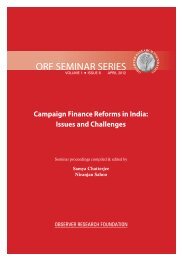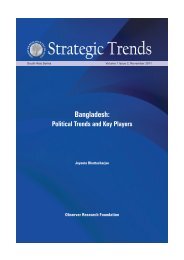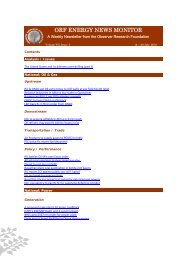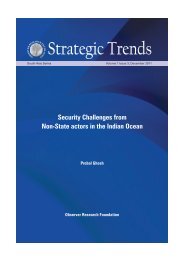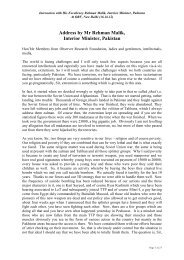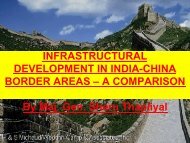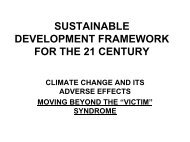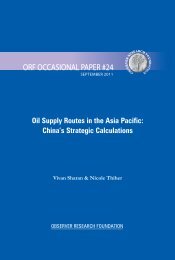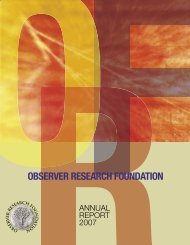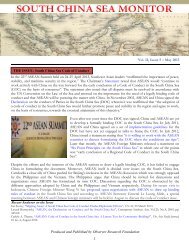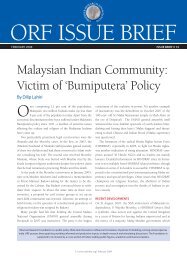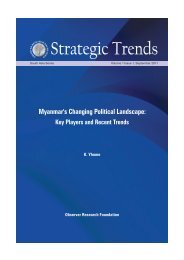Tangled Relationships - Observer Research Foundation
Tangled Relationships - Observer Research Foundation
Tangled Relationships - Observer Research Foundation
You also want an ePaper? Increase the reach of your titles
YUMPU automatically turns print PDFs into web optimized ePapers that Google loves.
ORF Occasional Paper<br />
58<br />
trust. These disputes should be set aside, as no solutions exist to the<br />
conflicting claims—just as India and China have been able to tackle a much<br />
graver problem of the long disputed border by insulating it from other<br />
aspects of the bilateral relationship. China now has much more to gain<br />
59<br />
from cooperation with Japan than from conflict. Harping about past sins<br />
60<br />
and inflaming the island dispute does little good. If China is to become<br />
the predominant regional power, it can only do so with Japan, not against<br />
61<br />
it.<br />
Similarly, on Japan and South Korea, Hitoshi Tanaka says, “In order to<br />
address the diplomatic fallout, the bilateral relationship must be reframed<br />
in such a way that shared interests and cooperation, not history and<br />
62<br />
territorial disputes, take centre stage.” Leaders in both countries need to<br />
recalibrate and re-emphasise the importance of Japan–South Korea<br />
cooperation, not only for the sake of the two countries themselves but also<br />
63<br />
for the region as a whole. Tanaka believes that in order to mitigate the<br />
diplomatic fallout, Japan and South Korea should insulate historical and<br />
territorial issues, preventing them from affecting substantive areas of<br />
64<br />
cooperation. Both countries will benefit if shared interests trump<br />
65<br />
historical animosity. As the Economist suggests in 'Protesting too much',<br />
the lid must be kept on nationalism for peace in North East Asia. The<br />
escalatory dynamic on the high seas is worrisome, and the absence of a<br />
maritime crisis management regime for the East China Sea is even more<br />
66<br />
troubling. The lack of an overarching North East Asian security<br />
architecture is also problematic as no mechanism exists to mediate and<br />
moderate state action. Miscalculation by either side could result in serious<br />
damage and even the loss of life. China, Japan and South Korea must<br />
intensify security cooperation within the framework of trilateral<br />
cooperation.<br />
22<br />
www.orfonline.org



